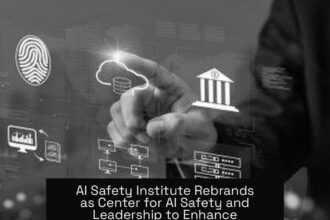Table of Contents
ToggleDoes College Still Have a Purpose in the ChatGPT Age?
College retains a vital role even in the age of AI tools like ChatGPT, as it offers more than just vocational training. It cultivates critical thinking, intellectual breadth, and character development that AI cannot replace. However, the integration of AI presents significant challenges and opportunities that institutions must address to maintain the value of higher education.
The Challenge of AI in Academia
Students increasingly use AI to complete assignments, making it difficult for professors to accurately assess individual effort. This widespread reliance on AI tools has disrupted traditional evaluation, as AI-generated content often closely mimics human work. Meanwhile, some educators have begun using AI themselves to review student submissions, creating a cycle of computer-generated work being graded by computers.
This situation raises concerns about academic integrity and fairness. Students who do original work may appear less proficient compared to those leveraging AI. Institutions face mounting pressure as tuition costs remain high despite these integrity issues, signaling a potential crisis in academic evaluation. The threat extends beyond cheating, potentially undermining the core mission of universities.
Incorporating AI Responsibly in Higher Education
Despite these challenges, integrating AI into curricula holds promise. AI can enhance student engagement and better prepare graduates for evolving workplace demands. Employers increasingly expect competency in AI tools, and schools can incorporate such skills to boost productivity and innovation potential.
- AI teaches adaptability and digital literacy.
- It reflects modern job market realities.
- Properly guided use can deepen learning rather than replace it.
Effective integration requires clear guidelines and pedagogy tailored to leveraging AI without compromising academic rigor.
The Enduring Value of Humanities and Critical Thinking
College education extends beyond job training. Humanities disciplines nurture critical analytical skills and broaden perspectives. Engaging deeply with classical thinkers or complex texts demands human effort that AI prompts cannot replicate.
These skills foster employability, citizenship, and personal growth. Students learn to synthesize viewpoints, justify opinions, and understand foundational social values. Knowledge of history and civics nurtures informed, ethical citizens able to navigate societal challenges.
Solutions and Adaptations for Colleges
Clear Policies on AI Use
Colleges must explicitly state when AI assistance is acceptable and the consequences for misuse. Vague or non-existent policies leave room for abuse and confusion. A formal framework reassures students and faculty regarding the ethical and pedagogical boundaries of AI in coursework.
Traditional and Innovative Assessments
Increasing in-person evaluations like paper exams and oral tests helps maintain integrity. These methods encourage mastery over material instead of superficial AI-generated answers.
Additionally, institutions can design innovative assessment tools that incorporate AI-aware assignments. For example, projects requiring reflection on AI-generated drafts or critique of AI outputs can harness the technology while preserving educational goals.
Technological Responses to AI Use
Software aimed at detecting AI-generated work is evolving. Current tools face issues like easy evasion and false positives but are improving. As universities enforce stricter policies, detection technologies will mature, reducing incentives to use AI dishonestly.
Students adopting new verification methods such as screen recordings during work sessions may become standard practice to prove authenticity.
Shaping Campus Norms and Enforcing Consequences
Academic dishonesty is persistent, but campuses can cultivate a culture that discourages misuse of AI. Clear consequences and ethical education about AI’s proper role are essential to uphold standards.
Fostering this culture supports the university’s mission and ensures that graduates emerge prepared both intellectually and ethically for modern challenges.
Key Takeaways
- College remains crucial for developing critical thinking and citizenship beyond job skills.
- AI challenges traditional academic assessment and demands new policies.
- Responsible AI integration can enhance student learning and workforce readiness.
- Innovative and traditional assessments help uphold academic integrity.
- Technology will improve AI detection but fostering ethical campus culture is key.
Does College Still Have a Purpose in the ChatGPT Age?
In a world where AI like ChatGPT can churn out essays with a blink, one might wonder: “Does college still have a purpose?” The short answer is yes—but the story behind that answer is rich, complicated, and downright fascinating.
Let’s dive into the vivid landscape of higher education grappling with AI’s rise, exploring both the challenges and opportunities that shape the modern college experience.
The AI Challenge: When Homework Outsourcing Becomes Routine
Picture this: Students casually handing over their assignments to AI assistants, hitting “generate,” and submitting polished work—all while their hardworking classmates struggle to keep up. It’s a real scenario facing colleges today. Professors find it nearly impossible to tell a human essay from one crafted by sophisticated AI. The curious twist? Many professors themselves are turning to AI tools as aids for grading. It’s a bizarre loop: computers grading papers written by computers, students and professors caught in the middle, and families shelling out huge tuition dollars for this tangled dance.
This raises serious questions. If AI blurs the line between genuine effort and automated output, what does that mean for learning? Is college still reliable for measuring true knowledge or skill mastery? The current reality feels less like education and more like a crisis waiting to happen.
But Wait—AI Isn’t Just a Threat; It’s Also a Powerful Ally
Before we doom college to irrelevance, let’s consider how AI can actually enhance education. Integrating AI tools into the curriculum is proving beneficial in surprising ways. For starters, some studies suggest it boosts student engagement, sparking curiosity about tech and its applications. Not only that, the modern workforce increasingly demands graduates who know how to leverage AI for productivity and innovation.
Think of it as upgrading the college toolkit: Beyond rote memorization and tired lectures, students learn to wield AI responsibly. They become collaborators with machines, building skills that employers crave. This kind of pairing could transform education from static to dynamic, preparing students not just to use AI, but to think uniquely alongside it.
The Enduring Power of Humanities and Critical Thinking
One tempting but dangerous notion is that college’s sole mission is vocational training—just prepping for a job. Yet, a profound part of college is something subtler and deeper: developing critical thinking and intellectual habits. Humanities subjects, for example, do far more than fill credit hours. They engage students with ideas from Aristotle to Adam Smith, nurturing minds to analyze, synthesize, and challenge.
Can you get this from a ChatGPT prompt? Not even close. AI processes text by patterns, but mastering a thinker’s complex argument or wrestling with philosophy requires grit and reflection. These skills foster employability, yes, but also shape character, perspective, and even civic responsibility.
What’s more, knowing history and civics isn’t just “nice to have.” In a society flooded with fake news and polarized debates, college-trained critical minds become essential anchors for democracy. So the value of college transcends job prep—it builds decent citizens capable of navigating complexity.
How Colleges Can Adapt and Thrive
Okay, so college isn’t dead. But how should institutions evolve in this strange AI age? First off, they need serious policies about AI use. Ambiguous guidelines just invite misuse and confusion. Clear rules — when AI is allowed, how to use it, and what penalties apply — will help students and professors navigate this new terrain.
Moreover, schools must rethink assessment altogether. Paper-and-pencil exams and oral quizzes made a comeback for a reason: they reduce cheating and encourage mastery over mere shortcuts. Some colleges experiment with “open-book but supervised” tests, project-based learning, or portfolio assessments. Creative, rigorous approaches keyed to AI realities can help preserve academic integrity.
On the tech front, detection software is still learning. Current AI-text-detection tools are both easily fooled and prone to false alarms. Yet, anticipation that these tools will improve is well-founded. Alongside that, innovative tactics like screen recordings during assignments show promise as proof of genuine work. Gradually, these methods can reshape campus culture.
And let’s be honest: Cheating has always existed. The key is to make it tougher, enforce consequences firmly, and—most importantly—build a campus ethos where integrity is expected. This cultural shift might just determine universities’ futures.
Why College Still Matters, ChatGPT or Not
So, what can we take away here?
- Yes, AI challenges the traditional model of college education—but it does not obsolete it.
- Responsible AI integration offers fresh ways to engage students and prepare them for a tech-driven world.
- Critical thinking, humanities, and the synthesis of competing ideas provide learning dimensions AI can’t replicate.
- Institutions must adapt policies, evaluation methods, and campus norms to preserve value and integrity.
Will ChatGPT do your homework? Maybe. Will it learn your philosophy class? Doubtful. College—when creatively updated and firmly grounded in timeless intellectual values—still has a vibrant role to play.
In the end, the question isn’t just if college has a purpose today, but if it can reinvent itself fast enough. Something tells me it can.
What do you think? Is AI a menace to tradition or an exciting tool for transformation? Could your college experience thrive with AI, or has the game changed forever? Drop your thoughts below!
Q1: Can AI replace the learning experience offered by college?
AI can assist with tasks but it doesn’t replace critical thinking or deep engagement. College teaches analysis, judgment, and exposure to complex ideas that AI prompts cannot fully capture.
Q2: How should colleges handle AI use in assignments?
Clear policies are needed on when and how AI tools can be used. Schools should define acceptable use, guide students on proper AI integration, and enforce consequences for misuse.
Q3: Are humanities still relevant in an AI-driven world?
Yes, humanities cultivate critical thinking, broaden perspectives, and teach reasoning skills. These skills shape character and citizenship, aspects AI cannot replicate or replace.
Q4: What assessment methods work best with AI in the picture?
In-class exams, oral tests, and creative evaluations reduce cheating risks. These methods encourage genuine understanding and make reliance on AI for answers less effective.
Q5: Can technology reliably detect AI-generated student work?
Detection software is improving but still imperfect. As schools crack down, better tools and student verification methods like screen recordings may help ensure authenticity.





